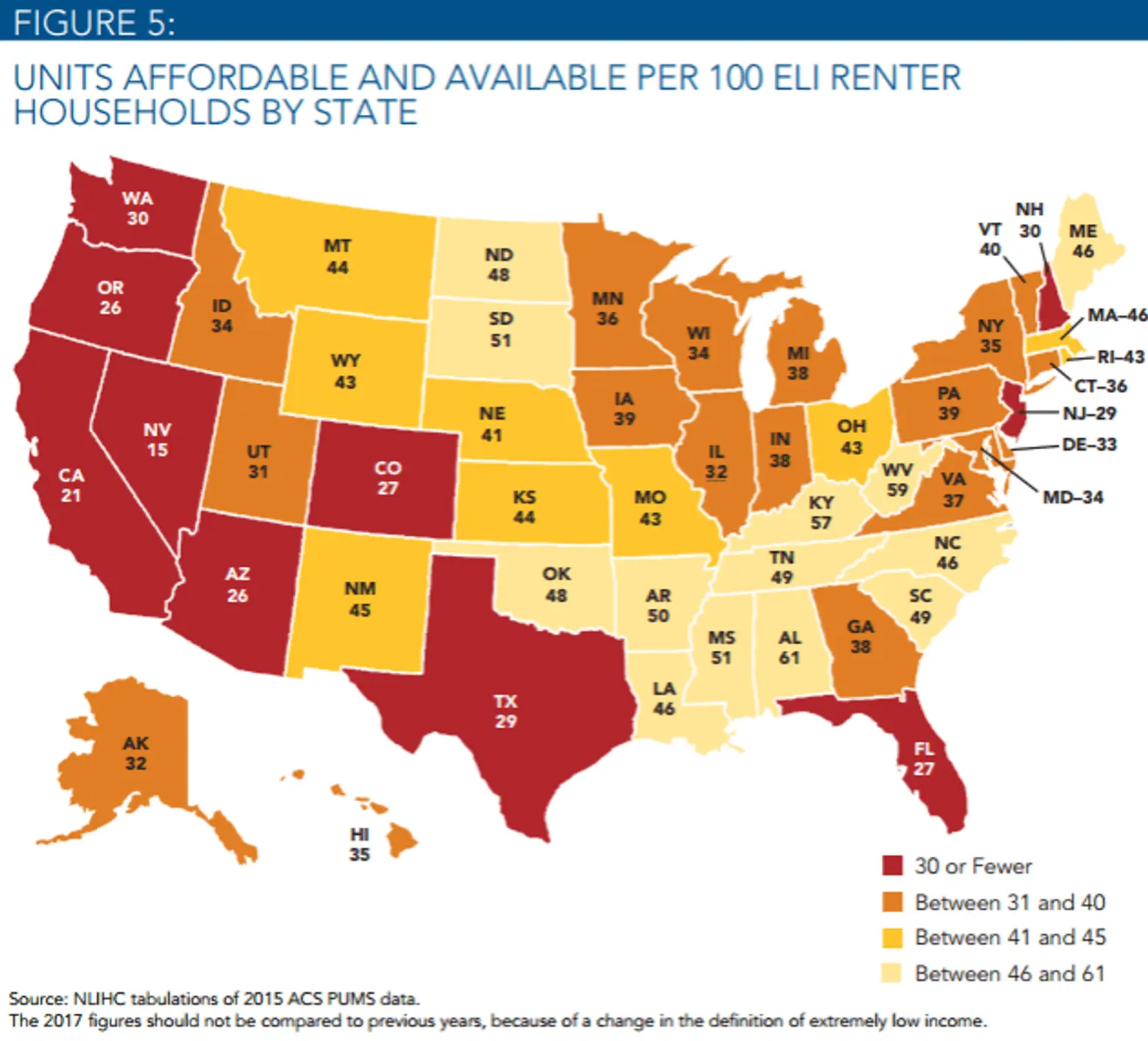Mapping America’s affordable housing shortage

Extremely low-income renters face a shortage of affordable housing in every single state and major metropolitan area in the United States, a deficiency of 3.9 million units, according to a report (h/t CityLab) by the National Low Income Housing Coalition (NLIHC). Nationwide, only about 35 affordable housing units exist per 100 extremely low-income homes, labeled as ELI households, and in the New York metro area (as defined by New York-Newark-Jersey City) the results are just as grim with only 32 units available per 100 households at or above the ELI threshold.
According to the NLIHC, to be classified as extremely low income, a household sits at or below the poverty guideline or 30 percent of their area median income (AMI). Their findings show that 11.4 million Americans fall into this income level, a figure that accounts for 26 percent of all U.S. renter households and nearly 10 percent of all households.
Although the NLIHC’s New York metro figures are aggregates, their finding of a 638,500 ELI unit deficit does cause great concern, particularly in light of looming budget cuts to federal housing under the Trump administration. As 6sqft reported yesterday, NYCHA is expecting to see their budget slashed by at least $35 million, some even speculating that figure could balloon to as much as $150 million.
At the city level, it is widely known that the de Blasio administration has made affordable housing a core tenet of its policy-making. The mayor announced early on a goal to preserve or build 200,000 units over 10 years. In three years of the mayor’s term, a total of 62,506 apartments have been built or preserved, according to the latest available data. Unfortunately, more than half of the apartments went to middle-income New Yorkers, not homeless or low-income New Yorkers that would be characterized as ELI.
[Via CityLab]
RELATED:





























